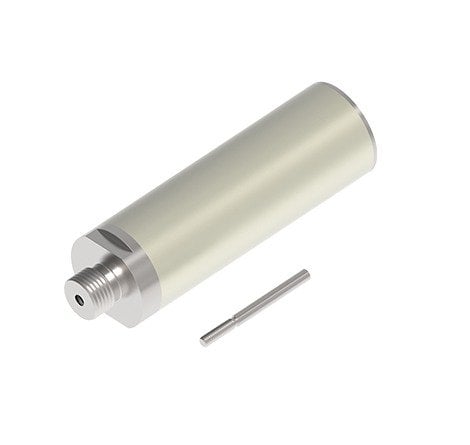www.industryemea.com
16
'20
Written on Modified on
TE CONNECTIVITY OFFERS CUSTOM, RUGGED AND RELIABLE HYDRAULIC LVDT SENSORS
Broad range of LVDT position sensors designed to meet the harsh environment demands of hydraulic applications

As electronification and digitization continue to grow within Industry 4.0, reliable position sensors are critical in meeting the harsh demands of industrial hydraulic applications. LVDT position sensors [1] from TE Connectivity (TE), a world leader in connectivity and sensors, offer standard and custom solutions based on hydraulic application requirements of ICT off-highway equipment and industrial machine tools.
“TE continues to offer one of the broadest range of LVDT position sensors designed to meet the harsh environment demands of hydraulic applications,” said Shane Lauth, senior project manager. “Customers are able to get a hydraulic LVDT with the form, fit, function and AC or DC processing needed for their system design. These sensors enable better system and feedback controls with high accuracy and fast response time.”
Optimized for hydraulic valves and actuators, TE’s LVDT position sensors are highly accurate, reliable, compact and adaptable.
The LVDT position sensor accuracy can measure spool position within one-thousandth of an inch and infinite resolution. Coupled with fast dynamic response, these sensors enable better system controls and
precise measurement for demanding applications and improve operating efficiency.
Friction-free operation enables reliable sensor life and repeatability, allowing hydraulic LVDTs to be used in demanding, high-cycle applications. These position sensors are hermetically sealed and can be mounted inside valves, capable of withstanding high pressure (up to 10,000 psi) and harsh exposure such as hydraulic fluid.
TE’s hydraulic LVDT compact designs can fit in restricted spaces and maximize stroke length in a given area. With stroke lengths as low as +0.005 inches, these LVDTs can be adapted to work in select valve applications that currently do not use LVDTs due to space constraints.
TE has a range of standard LVDT designs suitable for hydraulic valve applications as well as the ability to adapt and customize the sensors for other application requirements. It comes in signal conditioning,
extensive configuration flexibility for size and stroke length, pressure range, mounting preference, output and electrical connections. AC or DC units are available.
The LVDT position sensors are suited for use in industrial (injection molding, die casting, stamping presses, robotics, assembly equipment, and metalworking machinery) and ICT (construction and agriculture equipment, boom lifts, material handling, and mining vehicles) applications.
www.te.com

